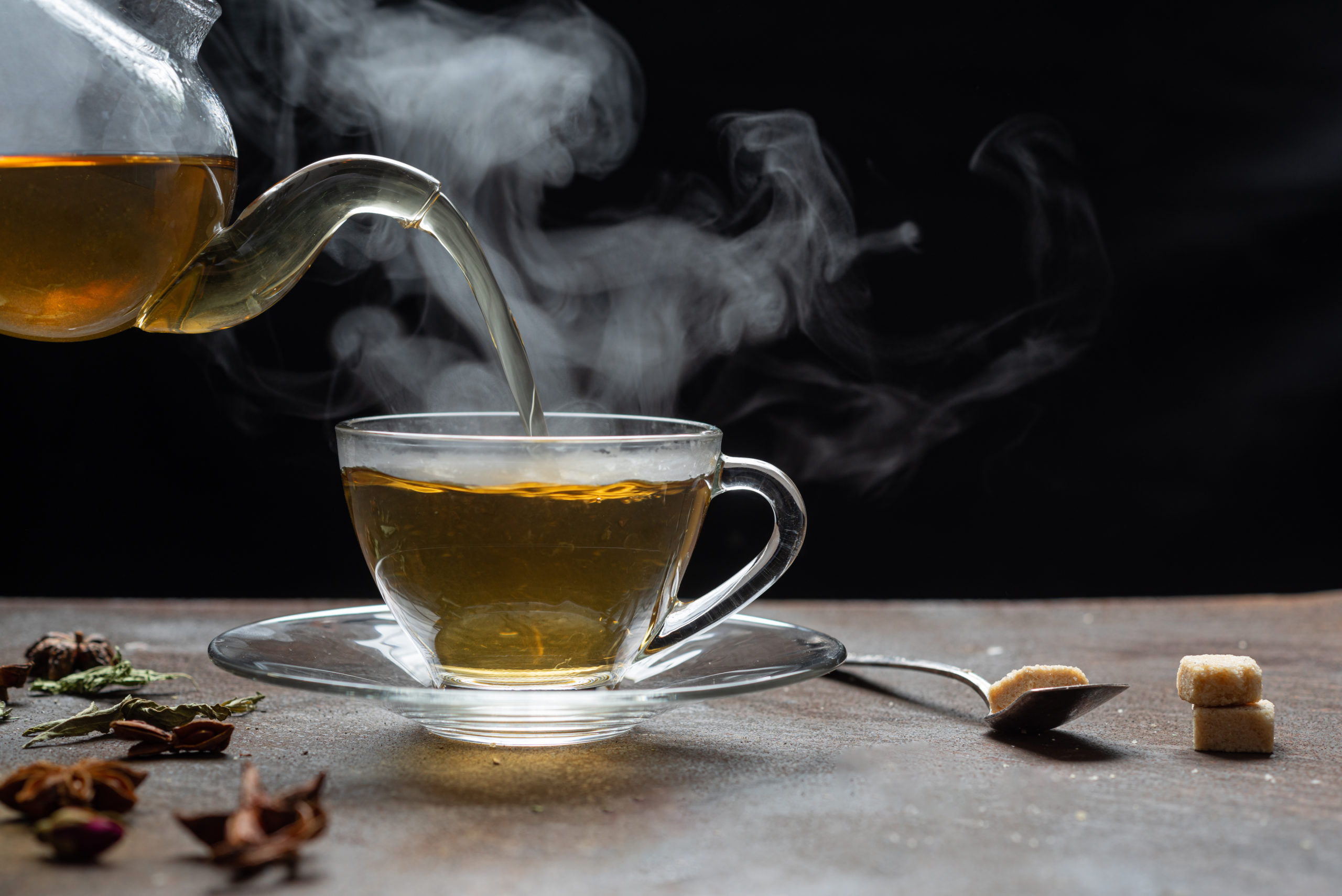Have you heard about this crazy idea that you can water plants with brewed tea? Many people thought it was ridiculous, but is brewed tea good for plants?
Yes! Using freshly-brewed or leftover brewed tea is good for plants to fertilize, hydrate, and nourish. It cannot supply them with all the nutrients they need. But, if you just happen to have some leftover brewed tea, your plants will enjoy and benefit from a ‘cuppa’.
How Tea Affects Plants
Tea contains many elements that can be healthy for plants. The nitrogen, potassium, and phosphorous contents of brewed tea make a viable fertilizer.
Brewed tea also contains some nutrients that are beneficial not only to humans but to plants as well.
Some of the healthy nutrients in tea include:
Vitamins and Minerals. Black and green teas contain high levels of Vitamins C, D, and K, as well as riboflavin. They also contain calcium, magnesium, iron, zinc, nickel, and fluoride.
Antioxidants. Brewed tea protects cells from damage. It contains natural antioxidants such as phenols, tannins, lignans, and flavonoids.
Theanine. This is an amino acid commonly present in tea leaves.
Polyphenols. These are micronutrients found in plant-based foods. Tannin is one of the most common polyphenol offering many different benefits to the soil.
Brewed tea contains similar nutrients you would typically find in the most popular fertilizers.
It’s worth trying to water your plants with brewed tea if you are into using tea for its natural abilities and sustainability.
As you can see, it is a big yes to the question, is brewed tea good for plants?
How to Apply Tea to your Plants
The most obvious way is to simply pour brewed tea over your plants as you do with water. This will make you less guilty if you leave your cup of brewed tea from getting cold.
Before pouring the remainder of your cup of brewed tea on your plant, be mindful of the amount of water your plant has already received for the day.
It is not as simple as just pouring a cup of brewed tea whenever you want.
Consider the amount of water and the frequency of watering that your plant needs. Brewed tea should be part of your plant’s daily water requirements.
It should not be added in addition to the amount of water needed by your plant.
Be careful not to water your plant with hot tea. Your plant will get shocked by the extreme temperature.
Don’t ever pour hot tea on your plant as it will scorch it and kill it upon contact.
Milk, sugar, or honey might make your tea taste great, but they are not good for your plant. Milk can cause your plant to develop molds or mildew. Sugar can cause your plant to wilt and kill it.
Plants that can Flourish with Brewed Tea
Tea contains powerful nutrients that can be helpful to some plants. The tannic acids and amino acids in tea can enhance the soil by lowering its pH level. This means also increasing the acidity of the soil.
Here are some plants that thrive on slightly acidic soil and will benefit from being watered with brewed tea:
Ferns (except Maidenhair ferns that thrive on alkaline-based soil)
East Lily
Oxalis
Tomatoes
Spider plant
Poinsettia
African violets
Hydrangeas
Rubber Plant
Philodendron
There are different methods of how you can use tea for fertilizing and watering your plants.
What is in a Tea Bag?
Brewed tea provides plants with nutrients in about the same amounts as fertilizer does. Tea and tea leaves are natural organic matters and most organic matters are great sources of nutrients for plants.
Dried tea leaves contain, nitrogen, phosphorus, and potassium.
Truth is, tea leaves contain more nitrogen than most liquid fertilizers.
Nitrogen promotes leafy growth, but not much of the nitrogen in tea leaves are available to plants.
Tea leaves also contain high amounts of tannic acid. Tannic acid added to the soil lowers its pH and increases its acidity. Some plants, such as ferns, like slightly acidic soil.
Green Tea – 7 to 10 pH
Black Tea – 5 to 5.5 pH
Herb Tea – 6 to 7 pH
Adding small amounts of tea to your plants will most likely not affect their pH. But adding tea daily will make your plant have the same pH as the tea.
Milk and sugar in your tea contain organic chemicals that feed microbes. While you do not want milk and sugar-growing in your plants, they are in tea and will not harm your plants or your home environment.
Final Thoughts
Brewed tea can be a convenient and useful way to help supplement the needs of some plants in your home. It’s a natural fertilizer for your plants because it contains high levels of nutrients that can help your plants grow and thrive.
Tea, however, does not contain enough benefits to make it worthwhile to specially brew, cool, and water your plants with it.
You would be wasting good tea which you could otherwise enjoy.
Yet, if you have leftover brewed tea, then by all means, use it to water your plants.
Is brewed tea good for plants? Yes, it is!
Jenny Marie
Tribal Writer
Edited By
Patricia Godwin

